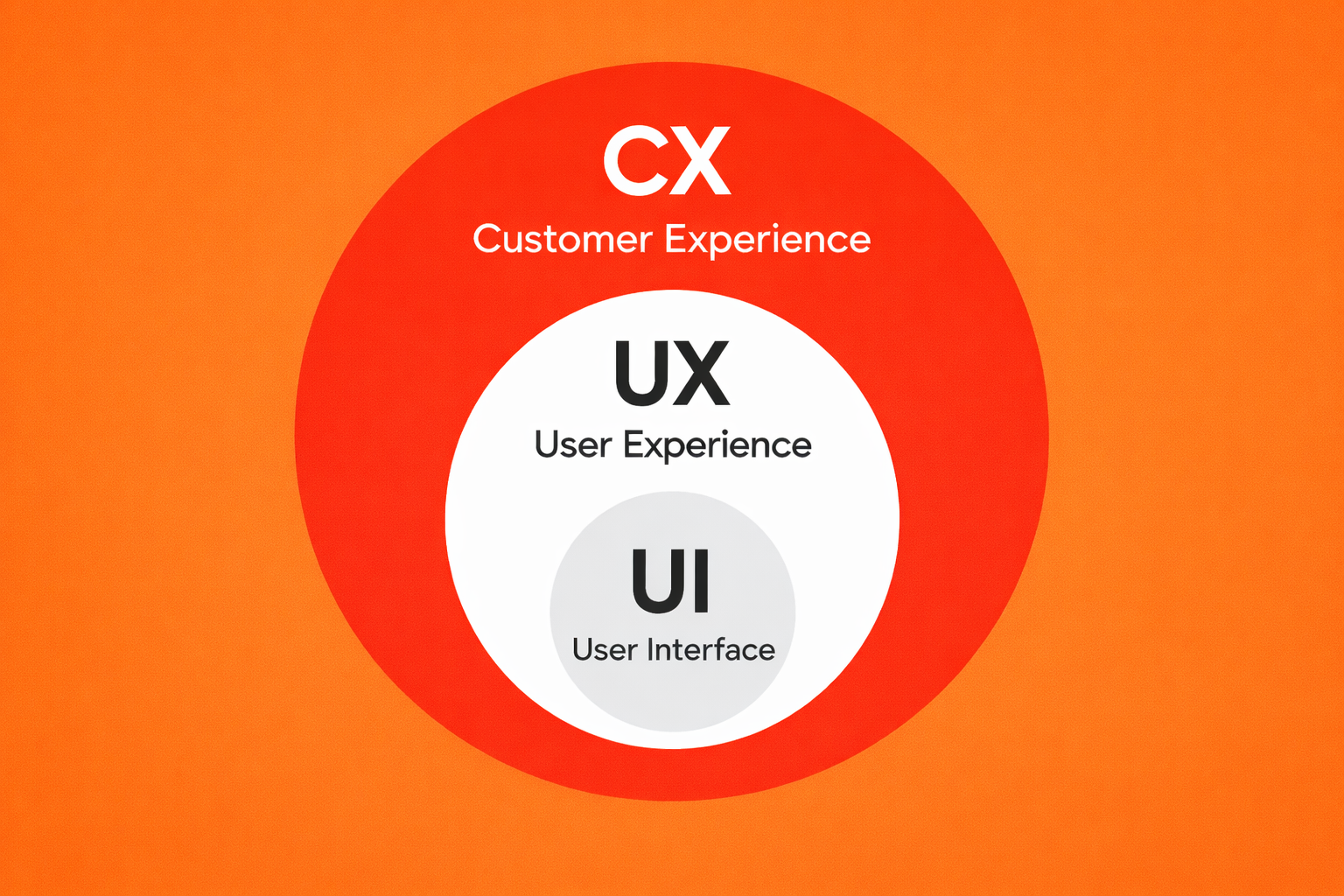What is the difference between CX, UX and UI?
CX, UX, and UI are three terms that get thrown around a lot. People sometimes mix them up or use them as if they’re the same thing. In this post, we’ll take a look at what each one means.
We’ll look at how they’re different, but how they’re connected and work together to help you create great digital experiences.
What is CX?
CX stands for customer experience. It’s the overall impression someone has of your brand, across every interaction, on any channel, from start to finish. That means everything from the first time they see your ad, to talking with customer service team, to buying something and how they feel after they’ve made a purchase.
While UX focuses more on specific digital journeys, CX is much wider and looks at entire journeys. It includes things like emails, support chats, in-store visits, delivery experiences, and so on - basically, any moment when a person connects with your brand.
The main goals of CX are to:
Make sure people have consistently good experiences however they interact with you
Set yourself apart from competitors with a better service and experience
Build brand trust, loyalty, and long-term customer relationships
The role of someone working in the CX will include:
Mapping out the full customer journey, across all platforms and touchpoints
Talking to customers and creating personas to understand their needs
Understanding what customers want from your brand, what they care about, what frustrates them, and what keeps them coming back
Bringing different teams together to make sure the customer experience lines up with business goals
Improving things like overall communication and service levels
Encouraging a customer-first mindset across the company
What is UX?
UX stands for user experience. It’s all about how people feel when they use a digital product, like your website or app. Are they finding what they need quickly? Is it easy to use? Does it feel simple? UX is actually part of the bigger CX picture - but it’s just focused on specific digital moments within that journey.
The main goals of UX are to:
Help users get things done on websites and apps easily and efficiently
Make interactions feel smooth and satisfying
Be accessible and usable for everyone
The role of someone working in UX will include:
Planning the experience for websites, apps, or other digital tools
Getting a better understanding of user needs through surveys and interviews
Organising content and creating user flows
Creating wireframes and building prototypes
Running usability tests and improving designs and digital experiences based on feedback
Using best practices and patterns to keep things simple and intuitive
Working closely with UI designers, developers, and product teams to make sure the user stays front and centre as the digital experience is created
What is UI?
UI stands for user interface. It’s the part of the digital experience that people actually see and interact with - the layout, buttons, icons, colours, images and so on. While UX is about how something works, UI is about how it looks and feels on the screen. UX and UI go hand-in-hand - you need both to create a great digital product.
The goals and role of a UI designer will include:
Designing visuals, like layouts, navigation and menus, buttons, imagery and animations, forms etc.
Choosing fonts, and colours, and sets the overall visual style
Creating designs and high-fidelity prototypes
Creating digital design systems and style guides to keep everything consistent
Working with UX designers and developers to bring the digital experience to life
Bringing it all together
CX, UX, and UI each play distinct roles in shaping how people experience your brand. CX covers the full journey - every touchpoint and interaction someone has with your business. UX focuses on how people feel when they use your digital products, and UI is all about how those products look and behave on the screen. They’re all connected, and when they work well together, they help you deliver better products, stronger customer relationships, and a more memorable brand experience.

